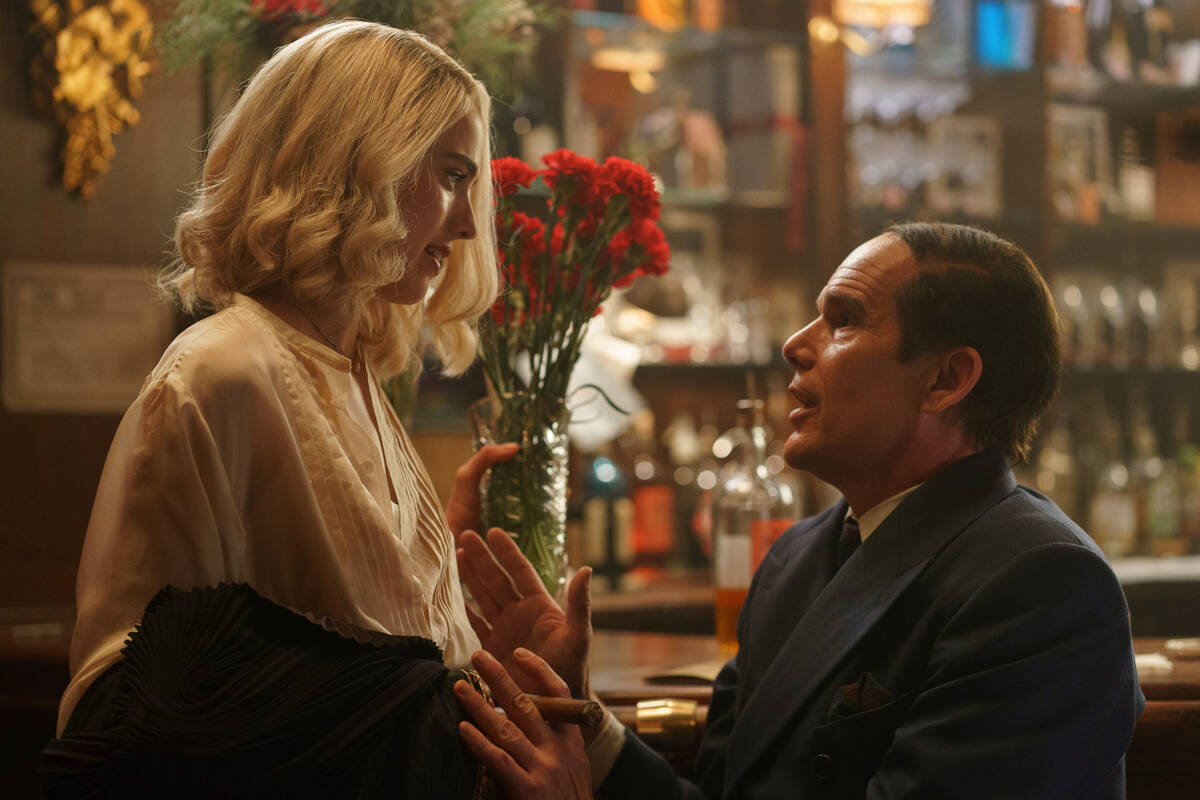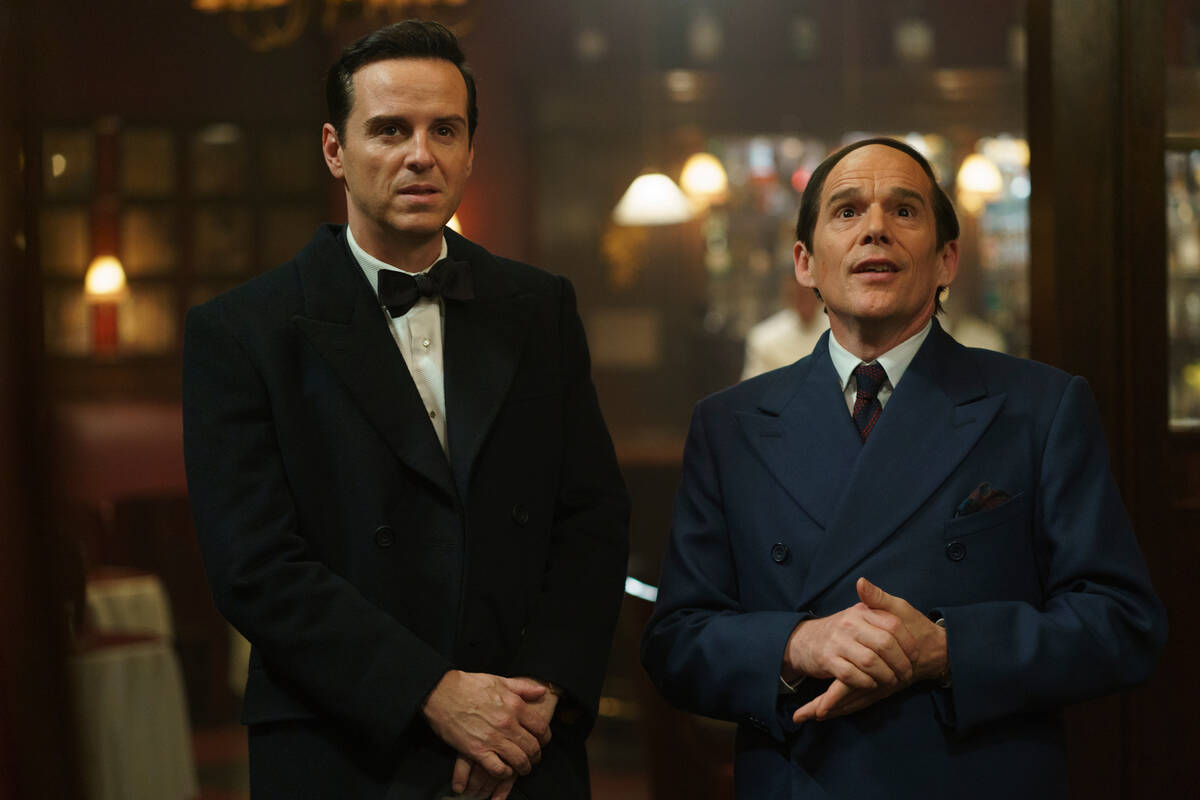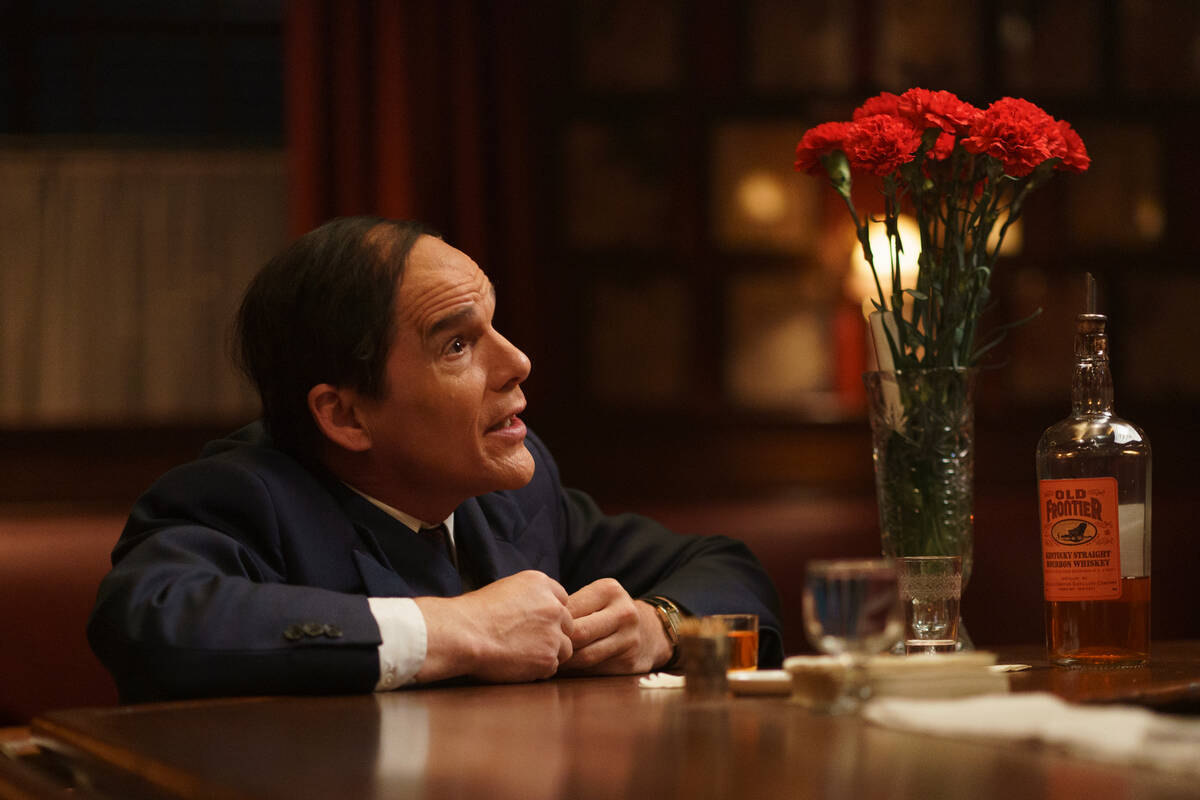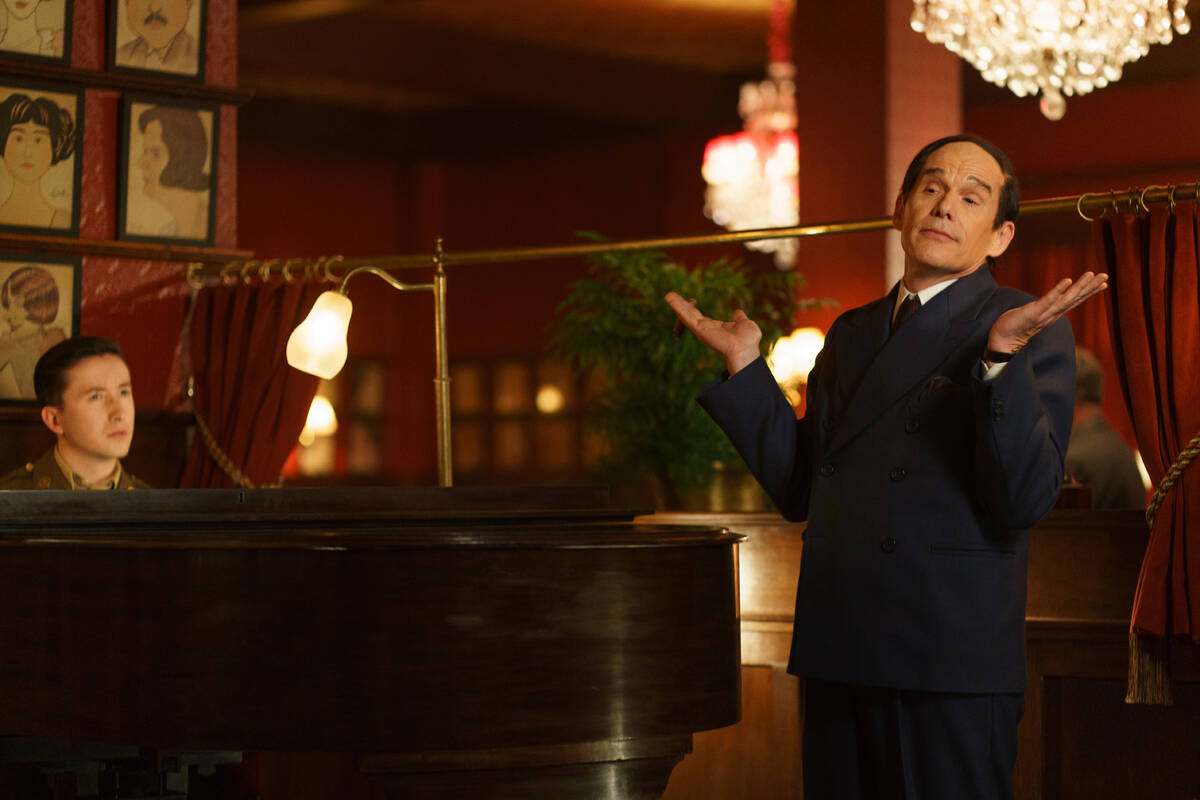‘Blue Moon’ is a poignant, funny valentine, and Ethan Hawke has never been better
For a filmmaker once synonymous with slackerdom, Richard Linklater has proven to be one of the most prodigious and consistently excellent American filmmakers. A small but rich vein of the two dozen features he’s made have been portraits of artists, including “Me and Orson Welles” and, if you like, “School of Rock.”
This fall brings two more, one set at the dawn of a great career (“Nouvelle Vague,” about Jean-Luc Godard and the birth of the French New Wave) and another on the cusp of its tragic end: “Blue Moon,” about lyricist Lorenz Hart. Both are joyous celebrations of brilliant, stubbornly uncompromising creative visionaries. And both are a grand time at the movies.
“Blue Moon,” the first to arrive of the two, is one of the more sheerly delightful movies of the year. It takes place at Sardi’s, in New York, on March 31, 1943. Down the street, “Oklahoma!” is premiering, a debut that stings Hart (Ethan Hawke). His longtime collaborator, composer Richard Rodgers, has made it not with Hart but with his new songwriting partner, Oscar Hammerstein II. Six months from this night, Hart will die from pneumonia after spending a cold night passed out outside a bar. He was 48.
While Broadway’s focus is on “Oklahoma!” ours is on Larry, as everyone calls him. He’s holding court at Sardi’s before Rodgers (Andrew Scott) and the “Oklahoma!” crowd rush in. There, he is regaling Eddie the bartender (Bobby Cannavale) and a few others (including E.B. White, played by Patrick Kennedy) in a free-flowing monologue, as he tries to resist the glass of whiskey on the bar, laments the imminent sensation of “Oklahoma!” and waxes poetic about some of his best lines.
“I’ve written a handful of words that are going to cheat death,” Larry says. Hart’s best work includes American songbook standards such as “My Funny Valentine,” “The Lady Is a Tramp,” “Bewitched, Bothered and Bewildered,” and, of course, “Blue Moon.”
But his appreciation for language goes far beyond himself. As much as he does a warm sip of bourbon, Larry savors any good quip, turn of phrase or mot juste. His favorite quote from “Casablanca,” for example, is a telling one: “Nobody ever loved me that much.” Larry adores the movie and, in particular, Bogart, who, he notes, is both short and a leading man. “Which proves you can be both,” Hart says.
Larry is, himself, diminutive, with greasy strands of hair combed over his bald head. The physical transformation for Hawke is a little extreme and potentially distracting. Yet the actor has simply never been better. Hawke’s Larry is a magnetic raconteur and an increasingly desperate has-been whose last-ditch attempts to reingratiate himself to Rodgers are limited as much by his excessive drinking as his refusal to hold his tongue. He is, to put it simply, extraordinarily good company.
“Oklahoma!” Larry realizes, is going to be performed from that moment “until Doomsday.” Even that exclamation point irks him. But more than that, the success of “Oklahoma!” — a musical Larry deems a “fraudulent” portrait of America — casts his sorry situation in a poignant light. This is the dawn of a mainstream Americana that doesn’t have room for an unconventional man like Larry or his blue songs.
That makes this night at Sardi’s a bittersweet salvation and a tender eulogy. In its finest moments, Linklater’s film pays homage not just to Hart but to all the forgotten writers who couldn’t cheat death but could tell one heck of a yarn.


















